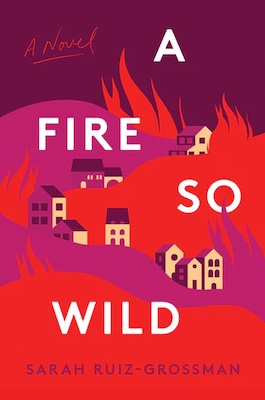A California Towhee bounced across the deck, its brown feathers tufted like a baby chick’s, proud and naive-looking all at once. I sat very still, fingers poised on my keyboard, silently watching, not wanting to spook it away. I knew its name—towhee—because I had recently become obsessed with birds, despite growing up in New York City and not knowing much beyond the neighborhood street pigeon. Over a year into the pandemic, my partner and I were isolated from friends, perched in our apartment in the Berkeley Hills, with only our dog and the trees and the birds for company. I latched onto the latter with an uncommon fervor.

I set up a bird feeder on our deck and each day, I waited for them to come. As I worked, a brown finch (or was it a sparrow? I was still new to this game) landed its small claws on the edge of the feeder, pecking at the seed inside. Suddenly, a scurry of feathers: a larger Scrub jay swooped in, the neighborhood bully, scaring its smaller competitor off, eating messily, tossing birdfeed to the floor. Meanwhile, hawks soared menacingly, elegantly above, red tail gleaming in the sun. I was mesmerized.
The birds calmed me when the world was in turmoil, my day job as a reporter keeping my mind hovering in grief over the pandemic, nearby wildfires, racial justice protests cracked down upon by violent cops. The birds slowed me down. And as I worked on my debut novel, they snuck their way into my book. In A Fire So Wild, a wildfire approaches Berkeley and three families are forced to reckon with the cracks in the lives they’ve built and the injustices teeming under the city’s surface. Two of the main characters—fed by my obsession—became amateur birdwatchers, high school students passionate about the climate, seeking out an elusive Spotted owl, mourning baby birds frantically leaping from their nests to escape the suffocating smoke. On the page, my bird friends became literal canaries in the coal mine of our world on fire.
In the seven incredible books that follow, the authors find similar refuge in the company of birds, be they clever crows who visit them daily to play, or kingfishers with regal blue crowns to whom their human observers mean nothing at all. In the birds’ elegant flight, readers can find a soaring hope for the future, and in their tweets, an urgent reminder to be present in this very moment.
Migrations by Charlotte McConaghy
In this harrowing novel, Franny Stone is haunted by her dark past and risks her life to board a fishing boat with a crew of misfits, guiding them across treacherous oceans, on a mission to track some of the last Arctic terns on the planet, threatened with extinction due to the climate crisis. As the mystery of her past comes to the fore, Franny’s hunger for finding the birds seems to map onto a deeper quest to discover life’s meaning and a chance at making sense of her pain.
The Hurting Kind by Ada Limón
In this transporting poetry collection, U.S. poet laureate Ada Limón explores the deep connection between humans and the nature that surrounds us, which can heal ancestral wounds. In her poems, belted kingfishers, fledgling robins and more flit across lines of verse, holding in their claws both the beauty of this world, as well as its deep suffering.
How to Do Nothing by Jenny Odell
In this smart nonfiction book, Odell shows us how today’s apps and technologies are designed to draw our attention—to the detriment of our presence in our own lives, and fueling our complicity in the exploitative, capitalist economy. Her remedy to this, in part, consists of paying more attention to what surrounds us, including, for her, the nature and birds in her native Bay Area. She befriends crows in her Oakland neighborhood, who recognize human faces and make near-daily visits to see her, among other delights.
H is for Hawk by Helen Macdonald
In this moving nature memoir, Macdonald recounts the trials of training a wild goshawk to hunt in the wake of her father’s death. As we accompany the author through her grief, we see her find her own wings as the seemingly untameable bird learns from her, and teaches her in turn.
Bird By Bird by Anne Lamott
In this classic in the writing advice genre, Lamott guides creatives in how to get out of their own way and get words onto the page. The titular example she points to for those stuck in a rut is that of her older brother, back when they were kids, who had to write a report on birds and felt overwhelmed by the gargantuan assignment. Her father advised him: “Just take it bird by bird.”
Featherhood by Charlie Gilmour
In this memoir, Gilmour carves dual narratives of his raising a mischievous magpie, all the while coping with his largely absent father dying. At the same time, Gilmour is deciding with his partner whether they should become parents, and his relationship with the bird creates an opening for him to confront the pain of his father’s estrangement and his own desire to father.
Inciting Joy by Ross Gay
In this transcendent series of essays, Gay delves into the corners of ordinary life, from basketball to gardening, finding joy and grief—and most of all, community and radical solidarity—in our everyday. At one point, Gay imagines his late father watching kids play ball when two cardinals interrupt with their birdsong from a nearby fence: “They wanna watch, too, I guess,” he imagines his father saying, giggling. In another instance, Gay describes a group of people who are exchanging their woes as “a flock of folks with their sorrows, a coven.”
